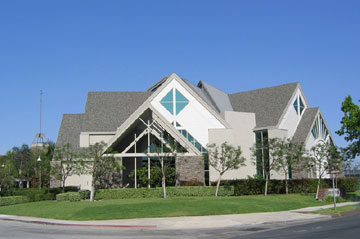In my last post I confessed that I am by nature someone who avoids conflict. Thus, I am wired not to obey the teaching of Jesus with respect to confronting one who sins against me. Nevertheless, in my effort to obey my Lord, I have sometimes experienced healing and reconciliation that makes that effort more than worthwhile.
I think, for example, of my relationship with a man I’ll call Les. When I came to Irvine Pres, Len was excited. But, before long, I started doing things that bothered him. So Len would write me long epistles, chronicling at length where I was falling short. These were Les’s version of going directly to me, I think. Not only did the letters contain lists of my purported errors, but also they challenged my personal integrity. At this point, Len had clearly sinned against me. So I would call him up and arrange a one-on-one meeting. I would try to respond to Len’s criticisms, usually by finding one that was in the ballpark of truth. Then I’d explain to Len where I believed he had sinned against me and why. In every case, and there probably were about eight of these conversations, Len would admit that he had wronged me and he would apologize. I’d forgive me. We’d pray together. And our relationship seemed to be mended, until the next time Len sent an epistle.
But, in time, Len’s epistles became less frequent. He’d still have things to complain about, but he’d do so in less verbose ways. After about four years of this pattern, Len stopped sending letters altogether. He became one of my strongest supporters in the church, and I became grateful for our relationship. (Photo: The fellowship hall of Irvine Presbyterian Church, where we worshiped during my early years there, before we built out sanctuary.)
I know it doesn’t always happen this way. I could tell plenty of stories to illustrate the opposite conclusion. Sometimes people, either the offender or the offended or both, are simply not mature enough in Christ to come to a place of reconciliation. But I do know that if we follow Jesus’ counsel, it will often make a real difference in our lives and in our churches. Moreover, for disciples of Jesus, the call to obey doesn’t rest on the possibility of a happy result. We are to do what Jesus says because he’s our Lord and because we want to honor him.
I recognize that, in practice, it is sometimes very difficult to do what Jesus asks of us. I’m thankful for many comments and emails I received that brought up particularly tricky situations. I have been able to respond to some of these. Others have received wise responses for fellow commenters. I apologize for not being able to address every case.
If you find yourself in a situation where implementing the teaching of Jesus is particularly difficult, I would urge you to seek counsel from a wise Christian brother or sister. Yes, I know Jesus didn’t say to do this. But there are sometimes when circumstances and personalities are such that we aren’t quite sure how to obey Jesus. In cases like these, we need help from another who is more mature in the faith than we are. Notice, however, that I’m suggesting you speak with one person only. I’m assuming this person will be someone who can keep confidence. In many cases this person might be your pastor, unless, of course, the one who sinned against you is your pastor.
In conclusion, I’d encourage each and every one of us to take seriously the teaching of Jesus concerning how to act when someone sins against us. If you haven’t been putting Jesus’ instructions into practice, you may very well find yourself with a backlog. Give yourself adequate time to seek to mend the broken relationships in your life. But, by all means, start doing what Jesus says. The end result will be, not only the reassurance that comes with obedience, but also the potential of greater health in your relationships and in the church . . . and even in your own heart.

